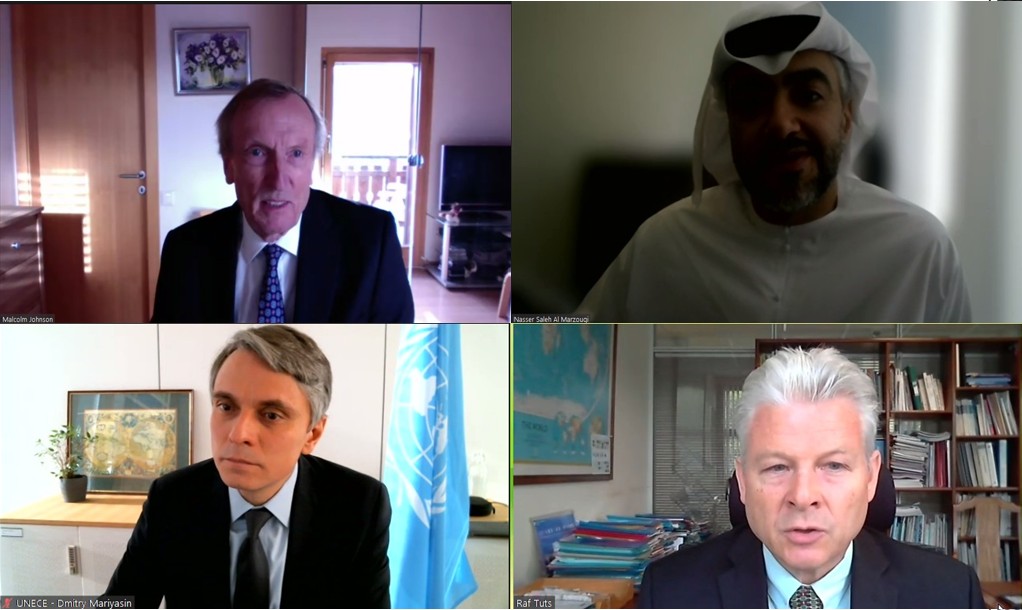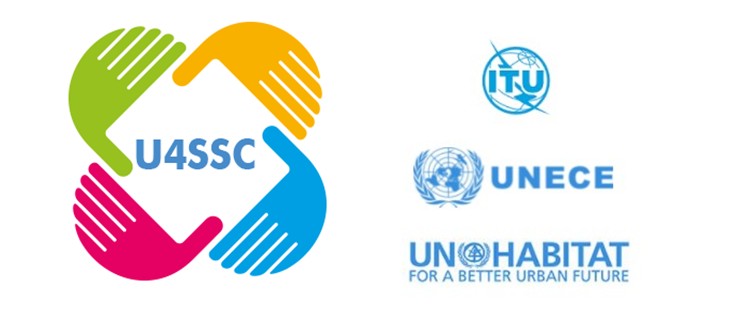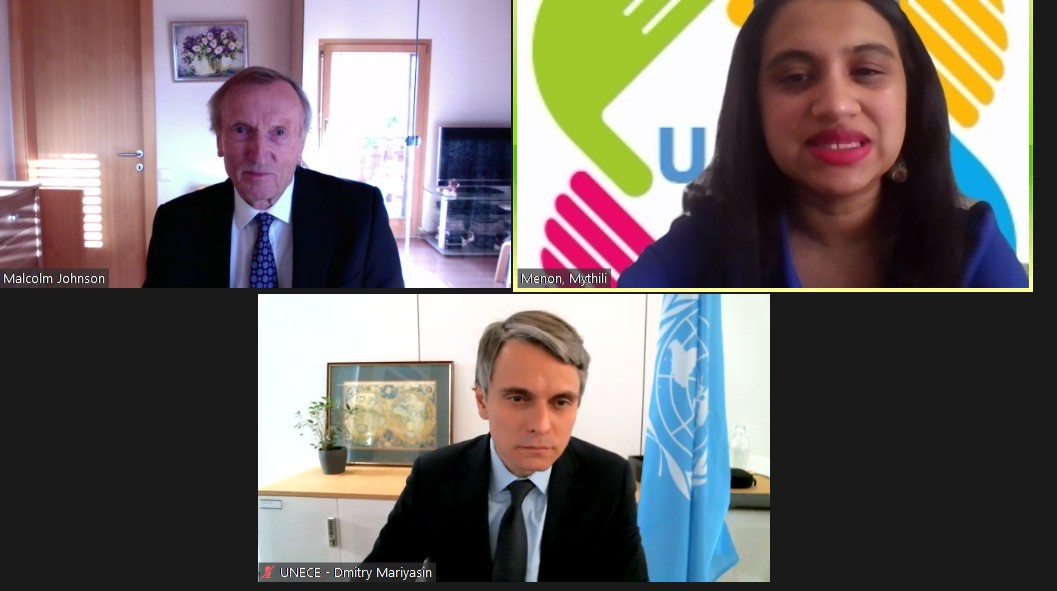
As part of the United for Smart Sustainable Cities (U4SSC) initiative, the International Telecommunication Union (ITU), the United Nations Economic Commission for Europe (UNECE) and UN-Habitat hosted the sixth meeting of the U4SSC initiative on 7 December 2021 in a virtual format using the Zoom platform ...
The event was attended by representatives of regional and international telecommunication organizations.
The above meeting was opened and welcoming statements were made by ITU Deputy Secretary General Malcolm Johnson, Dmitry Maryasin, Deputy Executive Secretary, UNECE, Raf Tuts, Director, Global Solutions Division, UN-Habitat, Nasser Saleh Al Marzouki, U4SSC Chair.

“A smart sustainable city is an innovative city that uses information and communication technologies (ICT) and other means to improve the quality of life, the efficiency of urban operations and services, and competitiveness while meeting the needs of present and future generations.”
The U4SSC initiative contributes to the achievement of sustainable development goals and also serves as a global platform to advocate for public policy and promote the use of ICTs to facilitate the transition to smart sustainable cities.

Dmitry Maryasin was the main speaker on the topic of Interregional cooperation on the implementation of the New Program for Urban Development and Recovery from COVID-19 in Informal Settlements in the EEC Region.
Under this project, the five UN and UN-Habitat Regional Commissions will:
- support national governments and individual cities in strengthening their role in achieving sustainable development;
- to improve the coherence of the policies of the Member States in the regions; and contribute to strengthening the capacity of institutions and “human agents of change” in the implementation of the New Urban Agenda (NUA).
This requires greater integration of different aspects (regional, national, local) of the program through various activities, including:
- Strengthening the capacity of national and local decision-makers to implement, monitor and report on NUA and city SDGs;
- Creation of mechanisms for the exchange of information and successful experiences;
- Promote inclusive knowledge generation and dissemination through regional monitoring and reporting on sustainable urbanization.
In the UNECE region, the city of Almaty (Kazakhstan) was selected as the beneficiary of the project.
The project will support the implementation of Kazakhstan's 2050 vision in Almaty in line with the 2030 Agenda. This will be achieved through sustainable development of smart cities with the involvement of public and private actors through:
- Assessment of the city's performance as sustainable and reasonable using the U4SSC KPI collection methodology;
- Development of an investment proposal to attract potential partners from the private sector for the further development of the city as sustainable and smart.
Post-COVID-19 Recovery in Human Settlements in the ECE Region - This project aims to strengthen the capacity of national and local authorities in UNECE countries to meet the needs of the most vulnerable populations living in informal settlements. This will contribute to socio-economic recovery from the pandemic and will help to increase the resilience of cities and participating countries.
The project will also strengthen the capacity of national and local authorities in four pilot countries to develop plans for the rehabilitation and modernization of informal settlements.
It will also complement ongoing work in five selected informal settlements in Bishkek under the UNDA-funded project “Smart Sustainable Cities for the 2030 Agenda for Sustainable Development and the New Urban Agenda in the UNECE Region”.
The target countries are Albania (Tirana), Kyrgyzstan (Bishkek), Montenegro (Podgorica) and North Macedonia (Skopje).
The most pressing priority identified by the Bishkek City Hall is the formalization and transformation of informal settlements, which are home to about 20 percent of the city's population. The city has identified five pilot informal settlements to begin formalization. The integration of these settlements (land and buildings) into formal land markets is a prerequisite for attracting additional investment for the implementation of possible future transformations of these territories into sustainable areas. It is equally important to provide residents of these settlements with identity documents that will enable them to access basic services such as hospitals, schools, and register property, among other things.
The project will result in the development of an Action Plan for the Recovery of Informal Settlements after COVID-19 for the countries of the ECE region, as well as specific recommendations for four pilot cities to modernize informal settlements and support cities in recovering from the COVID-19 pandemic.
Expected benefits for participating cities
- An action plan for rebuilding informal settlements in the ECE region after COVID-19, including detailed recommendations for four pilot cities.
- Strengthening the capacity of national, subnational and local governments in four cities / countries of the project to transform informal settlements into resilient, resilient urban areas during the recovery from the COVID-19 pandemic.
- Prepare a series of online lectures on the informal building process to build the capacity of national and local authorities and as a starting point for the implementation of the Recovery Action Plan.
- Organization of a series of thematic online seminars to build the capacity of local politicians and government bodies in the areas of sustainable urban development policies.

Sessions were included in the agenda of the meeting:
- Session 1: Information on the work of the U4SSC thematic groups;
- Session 2: Latest U4SSC delivery results;
- Session 3: U4SSC program implementation and U4SSC Hub;
- Session 4: U4SSC Terms of Reference and Annual Work Plan 2021-2022.
At the closing ceremony, Nasser Saleh Al Marzouki, Chairman of the U4SSC summed up the results of the event and thanked all the participants in the meeting for their constructive and fruitful work.















